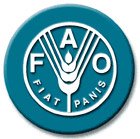 "Never before has man had such capacity to control his own environment, to end thirst and hunger, to conquer poverty and disease, to banish illiteracy and massive human misery", thus spoke John F. Kennedy almost 45 years ago. Yet, in the following decades more people lack sufficient food and access to fresh drinking water than ever before. At the same time our technological mastery of the environment has only increased. To highlight even further the absurdity of the situation, I quote Nicholas Cage's opening lines from the film Lord of War: "There are over 500 million fire arms in the worldwide circulation. That is one fire arm for every twelve people on the planet." It is here that we depart from the script because "The only question is" not, "How do we arm the other eleven?" Rather, the question is, to paraphrase General George Marshall, How do we eliminate the hunger, poverty, and desparation that leads to violence and chaos?
"Never before has man had such capacity to control his own environment, to end thirst and hunger, to conquer poverty and disease, to banish illiteracy and massive human misery", thus spoke John F. Kennedy almost 45 years ago. Yet, in the following decades more people lack sufficient food and access to fresh drinking water than ever before. At the same time our technological mastery of the environment has only increased. To highlight even further the absurdity of the situation, I quote Nicholas Cage's opening lines from the film Lord of War: "There are over 500 million fire arms in the worldwide circulation. That is one fire arm for every twelve people on the planet." It is here that we depart from the script because "The only question is" not, "How do we arm the other eleven?" Rather, the question is, to paraphrase General George Marshall, How do we eliminate the hunger, poverty, and desparation that leads to violence and chaos?The proliferation of weapons throughout the world serves to demonstrate that we use much of our technological mastery and manufacturing efficiency, not for good, but evil. This is not only true in our manufacturing and disseminating weapons, but in also biotechnology. True, some of this mastery has been put to use in order to increase
 the amount of food we are able to produce. The global problem of hunger is not a Malthusian problem. In other words, the world produces enough and more than enough food to feed everybody. Hunger is more a problem of bringing about a more just distribution of the earth's bounty. As Dr Jacques Diouf, General Director of the FAO, said recently, "Hunger is not an issue of charity. It is an issue of justice."
the amount of food we are able to produce. The global problem of hunger is not a Malthusian problem. In other words, the world produces enough and more than enough food to feed everybody. Hunger is more a problem of bringing about a more just distribution of the earth's bounty. As Dr Jacques Diouf, General Director of the FAO, said recently, "Hunger is not an issue of charity. It is an issue of justice."General George Marshall, five star Army Chief-of-Staff during WWII, later Secretary of State and first Secretary of Defense, after whom the Marshall Plan, the comprehensive plan for European reconstruction after WWII, was named because he was its main architect, said of that endeavor: "Our policy is directed not against any country or doctrine, but against hunger, poverty, desperation and chaos." These words should still resonate with us today as General Marshall's plan for winning the peace sounds like a great geo-political strategy for the twenty-first century.
What can we do? Well, we can fast this week and donate what we would've spent on food, say, $20-30, to a non-profit organization that works to feed the hungry, clothe the naked, shelter the homeless, etc. The Cathedral of the Madeleine's Good Samaritan Program, St. Vincent de Paul Soup Kitchen, Catholic Relief Services, Inter-faith Hospitality Network are all worthy organizations to which you can donate. We can also get involved as volunteers to aid these organizations and actually help people ourselves. Finally, we can add to our fasting and almsgiving our prayers for world leaders, Christians, and all men and women of good will to recognize and begin to work to alleviate hunger, thirst, and illiteracy. All of this is so very traditionally Catholic; we know them as the corporal works of mercy. They could just as easily be called Works of Justice. There are seven, the same as the number of sacraments. I can think of nothing more Eucharistic than sharing food, especially with those who lack it.

Corporal Works of Mercy
1. Feed the hungry
2. Give drink to the thirsty
3. Clothe the naked
4. Shelter the homeless
5. Comfort the imprisoned
6. Visit the sick
7. Bury the dead
Read Matthew 25,35-40.


No comments:
Post a Comment